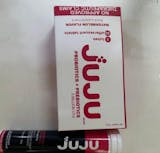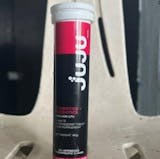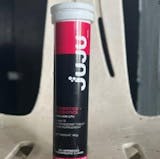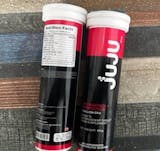Vitamin C and collagen supplements have seen a significant increase in popularity in the health and wellness industry. In this post, we will go over the importance of both, as well as the role of vitamin C in collagen synthesis.
One of the most wonderful vitamins is vitamin C. It is involved in many processes in the human body, and there are numerous health benefits to taking vitamin C, as you are probably aware if you are here.
One process in which Vitamin C participates is collagen synthesis, which is extremely vital for our bodies. As we all know, collagen, like vitamin C, plays a crucial role in our bodies. It not only helps our skin look younger, but it also helps our bones, teeth, hair, nails, tendons, and joints.
Continue reading to learn more about the role of vitamin C in collagen synthesis.
IN THIS ARTICLE
09. Conclusion
Definition of Collagen
Collagen is the most abundant protein in the human body. It can be found in muscular ligaments, tendons, and connective tissue. It helps to “keep” your body together in general.
Your skin contains both collagen and another protein called elastin. While collagen is responsible for skin firmness and “structure,” elastin is responsible for suppleness (i.e., its ability to bounce back).
There are approximately 28 different forms of collagen, each with a unique structure. The majority are made up of fibrils, which are long, thin, strong, and flexible structures. However, the most commonly studied collagen types are Types I, II, and III.
Types of Collagen:
Type 1:Type I collagen is essential for healthy hair, skin, nails, and bones.
Type II: Although Type II Collagen is less common in our bodies, it nevertheless provides significant benefits to the ageing body by promoting joint and cartilage health.
Type III: The second most frequent kind of collagen found in the body is type III collagen. Collagen types I and III are thought to support the intestines, muscles, blood vessels, and the uterus. The most prevalent source of type III collagen is bovine products.
Endogenous collagen is natural collagen produced by the body. Exogenous collagen is man-made. It comes from somewhere else, such as supplements.
Endogenous collagen serves several critical functions. Scurvy is caused by the breakdown and depletion of numerous health concerns. Exogenous collagen is used for cosmetic objectives, such as enhancing skin suppleness. Doctors also employ it in wound healing treatments.
Because collagen gives skin firmness and suppleness, many skin care products include it in their formulation. Collagen levels tend to decline as people age, and collagen fibers grow thinner and weaker. This adds to the sagging skin. As a result, collagen has become a popular supplement with anti-aging properties.
Definition of Vitamin C
Most people are familiar with vitamin C as ascorbic acid or sodium ascorbate, which can be found in foods such as vegetables and oranges or taken as a daily supplement to help keep the immune system strong.
Vitamin C is also a powerful antioxidant and vitamin for your general health and skin health. It is involved in the creation, maintenance, and protection of bones, vessels, and may help prevent UV radiation, neurotransmitters, and many other things.
Vitamin C deficiency can cause major health problems such as colds, viruses, achy joints, and even skin disorders. As a result, taking vitamin C supplements on a daily basis is recommended for people of all ages.
So, What Is The Role Of Vitamin C In Collagen Synthesis?
Without vitamin C, your body would not generate enough collagen to thrive. Isn’t it too important?
Vitamin C boosts your body’s natural collagen production, in short it boost collagen and aids in the maintenance of your body’s collagen network. Technically, vitamin C synthesizes collagen so that your body can activate the collagen gene expression (i.e., make more collagen).
Vitamin C is necessary as a cofactor for two enzymes involved in collagen synthesis: prolyl hydroxylase (which helps to stabilize the collagen molecule) and lysyl hydroxylase (to give structural strength cross-linking). Vitamin C (VitC) prevents the auto-inactivation of lysyl and prolyl hyroxylase, two essential enzymes in collagen formation, and so helps to maintain a normal mature collagen network in humans (anti-scurvy qualities). Vitamin C aids the two enzymes prolyl hydroxylase and lysyl hydroxylase in the stabilization and strengthening of our body’s collagen molecules.
Because they allow the development of stable, easy-to-use formulations, these two compounds can be called pro-vitamins for skin and could thus advantageously replace for VitC in VitC-based anti-ageing treatments.
The higher your body’s collagen production, the more supple and youthful your skin layers will appear. Both vitamin C and collagen have anti-aging properties that aid in the regeneration of skin cells and the reduction of wrinkles.
However, as we age, our bodies’ amounts of collagen and vitamin C decline. Many causes, including UV light exposure, pollution, and even stress, can all contribute to a decrease in vitamin C and collagen levels in the skin.
But, thanks to specialist journals and academic studies, there are now ways to replenish our bodies with a dose of Vitamin C and collagen. We may now utilize topical lotions, topical ascorbic acid, dietary supplements, and even skin care products containing these formulas to help reverse this reduction and enhance collagen levels in our bodies, resulting in healthy skin.
BENEFITS OF COLLAGEN WITH VITAMIN C SUPPLEMENTS
The combination of collagen and vitamin C provides a number of health benefits, some of which are given below:
Skin Advantages
Of course, this is a well-known fact: collagen and vitamin C supplements have proven significant anti-aging effects , and can repair skin damage such as dry skins and wrinkles.
An in vitro study compared human skin fibroblasts, connective tissue cells, from newborn newborns to those from elderly participants aged 80 to 95. Fibroblasts release collagen proteins, which aid in the maintenance of the structural framework of bodily tissues.
Furthermore, when supplied with vitamin C in vitro, the geriatric cells increased their collagen production.
Aside from skin ageing, consuming these supplements can have a significant impact on skin elasticity, UV protection, and skin hydration.
This implies that combining vitamin C with collagen will assist the body’s cells to synthesize it more quickly, which may speed up the formation of new body tissues and have an anti-aging effect because old cells are replaced by new cells more quickly.
Injury Prevention
Most injuries have no effect on the muscles, which are usually strong and well-conditioned. Tendon and ligament injuries are most common when they are overstressed by an external physical force.
Collagen makes up the majority of the dry weight of tendons and ligaments. The collagen fiber’s strength and flexibility help these relatively small bodily parts survive the demands of the muscular and skeletal systems of which they are a part. However, if the body is deficient in vitamin C and collagen, people are more likely to injure themselves.
Taking vitamin C and collagen may help your connective tissues stay healthy and prevent you from harm.
Joint Pain Relief
Collagen and vitamin C may provide the shoulder, hip, or knee joint pain relief you need if you suffer from chronic joint pain. Collagen is the main component of articular cartilage, that is the tissue that covers the ends of your joint bones and allows them to glide smoothly against one another. If your cartilage has deteriorated over time, you may get arthritis and painful joints.
Fortunately, research has shown that supplementary collagen, namely Type II collagen, can assist to rebuild cartilage in your joints, effectively turning back the clock.
Hair And Nail Health
There is some evidence that taking a collagen supplement can help prevent weak, brittle nails and promote hair and nail growth.
According to clinical studies , taking a collagen supplement may have considerable benefits for your hair and nails. For eight weeks, 54 women aged 26 to 68 received an oral collagen and hyaluronic acid supplement every day. By the end of the trial, the results showed a considerable increase in nail and hair health, as well as a significant decrease in skin dryness.
Types Of Collagen Supplements
Food is the best source of all vitamins. However, this is not always sufficient. Collagen plus vitamin C supplements are available in a variety of formats. It is critical to locate one that works for you.
Powder
Collagen powder can be incorporated into food and beverages. This can be taken on a daily basis, either blended with your favorite morning beverage or simply in water.
Hydrolyzed collagen
Collagen hydrolysate is another name for this. Hydrolyzed collagen is the ultimate consequence of hydrolysis. The collagen protein’s amino acids (essentially building blocks in our bodies) are broken down into tiny particles during the hydrolysis process, allowing us to absorb and digest nutrients far faster than those that have not been broken down. Your body can speed up the digestion and absorption process because it has already been broken down. When you digest nutrients more quickly, you absorb them more quickly, which implies better outcomes and faster improvement in your skin and health!
Pills or Tablets
Collagen can also be taken as pills or tablets. These are dietary supplements that are normally taken on a daily basis. People who do not want to deal with combining collagen into something usually prefer collagen capsules. They can quickly take the tablets with a glass of water and be finished. Collagen pills are merely encapsulated collagen powder with no added benefits.
Another thing to think about is the dosage. Because capsules aren’t that huge, you may need to take several capsules to acquire the same quantity as scooping in some collagen powder. Aside from those little drawbacks, collagen supplements are a terrific solution that will assist you with your supplemental goals.
If you’re looking for collagen supplements, consider Juju Collagen with Vitamin C Effervescent Tablets. It is a berry-flavored effervescent tablet that contains Collagen, Vitamin C, Vitamin E, Elastin, and other nutrients.
Serums and Creams
Collagen is not just consumed orally. You can also increase collagen by other products that use these formulations intended for external usage. These topical application of vitamin are frequently encountered on skin care products. Moisturizers with collagen and vitamin C as the major ingredients are available. However, research indicates that applying collagen and vitamin C to the skin is not as effective as orally supplemented.
Collagen Shots
One of the most common forms of collagen is liquid collagen. It is essentially dissolved collagen in various combinations, depending on the product. Just be aware of the additional additives and flavorings. These are frequently created using high-calorie syrups and juice concentrates.
Importance of Checking the Ingredients of Collagen And Vitamin C Supplements
It is critical to review the nutritional data of any product you intend to purchase. Because what you put in your body has an effect on you, knowing what it includes is a critical step in deciding which supplements to take.
When considering taking Collagen with Vitamin C, you should consider the substances utilized to avoid undesirable consequences. Collagen supplements are generally well accepted, with few negative effects documented. Some supplements, however, are produced from common food allergens such as fish, shellfish, and eggs. Individuals who are allergic to these foods should avoid collagen supplements containing these substances.
When you start looking for the best product to buy, you will be overwhelmed by the thousands of options. So, in order to avoid wasting money on bad items, carefully check the nutritional facts. Look for products that contain essential vitamins like as Vitamin C, Zinc, collagen pesticide, and ingredients derived from protein-rich foods.
How To Properly Store Collagen And Vitamin C Supplements
We recommend storing Collagen in a cold, dry place, such as your pantry, just like any other supplement. It may depend on the type of collagen supplement we’re talking about. However, the majority of these should be stored in a dry environment away from direct sunlight. It is also not recommended to store it in refrigerators because it can change the moisture content, particularly in powder form.
Frequently Asked Questions
What stimulates collagen growth?
A protein-rich diet, whether from plant or animal sources, can help supply these essential amino acids. Zinc, vitamin C, and copper are other substances that help with collagen formation. Fruits and vegetables high in vitamins and minerals are therefore beneficial to supple skin.
What helps collagen synthesis?
In addition to taking vitamin C pills. Consume a well-balanced diet rich in protein. High-protein foods contain amino acids that are essential for collagen formation. Fish, seafood, skinless chicken breast, and lean cuts of beef and pork are all good sources of lean protein.
How can I absorb collagen better?
The body cannot absorb collagen in its whole. Collagen proteins must therefore be broken down into smaller peptides or amino acids. The utilization of effervescent tablets such as Juju Collagen Vitamin C effervescent tablets will be the ideal form for rapid body absorption.
How can I increase my collagen production naturally?
Eating meals high in vitamin C and amino acids helps boost hyaluronic acid and collagen levels in the body, which are both vital for skin. Vitamin C-rich foods include oranges, red peppers, kale, Brussels sprouts, broccoli, and strawberries.
Conclusion
The link between collagen and vitamin C is clear. Several decades of research have revealed that Vitamin C plays a vital role in collagen synthesis. We can claim that Vitamin C is a potent vitamin and that including it in our diet is a great option now that we know the benefits of consuming both.
Though we can get it from natural foods, taking a supplement may also be beneficial. And, while selecting one, make sure you get the proper one for you. And, to be sure, check your doctor before taking anything you are unsure about.












